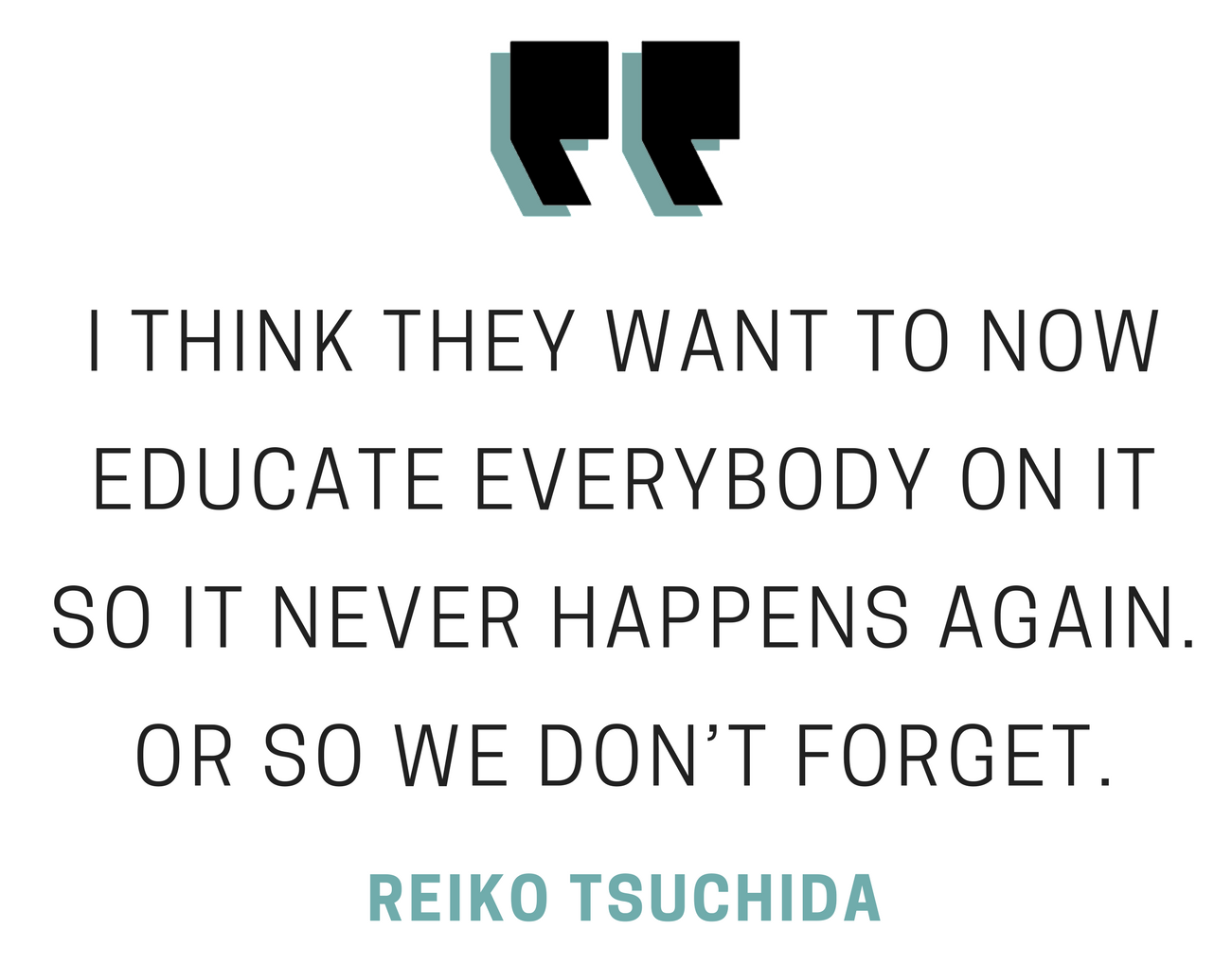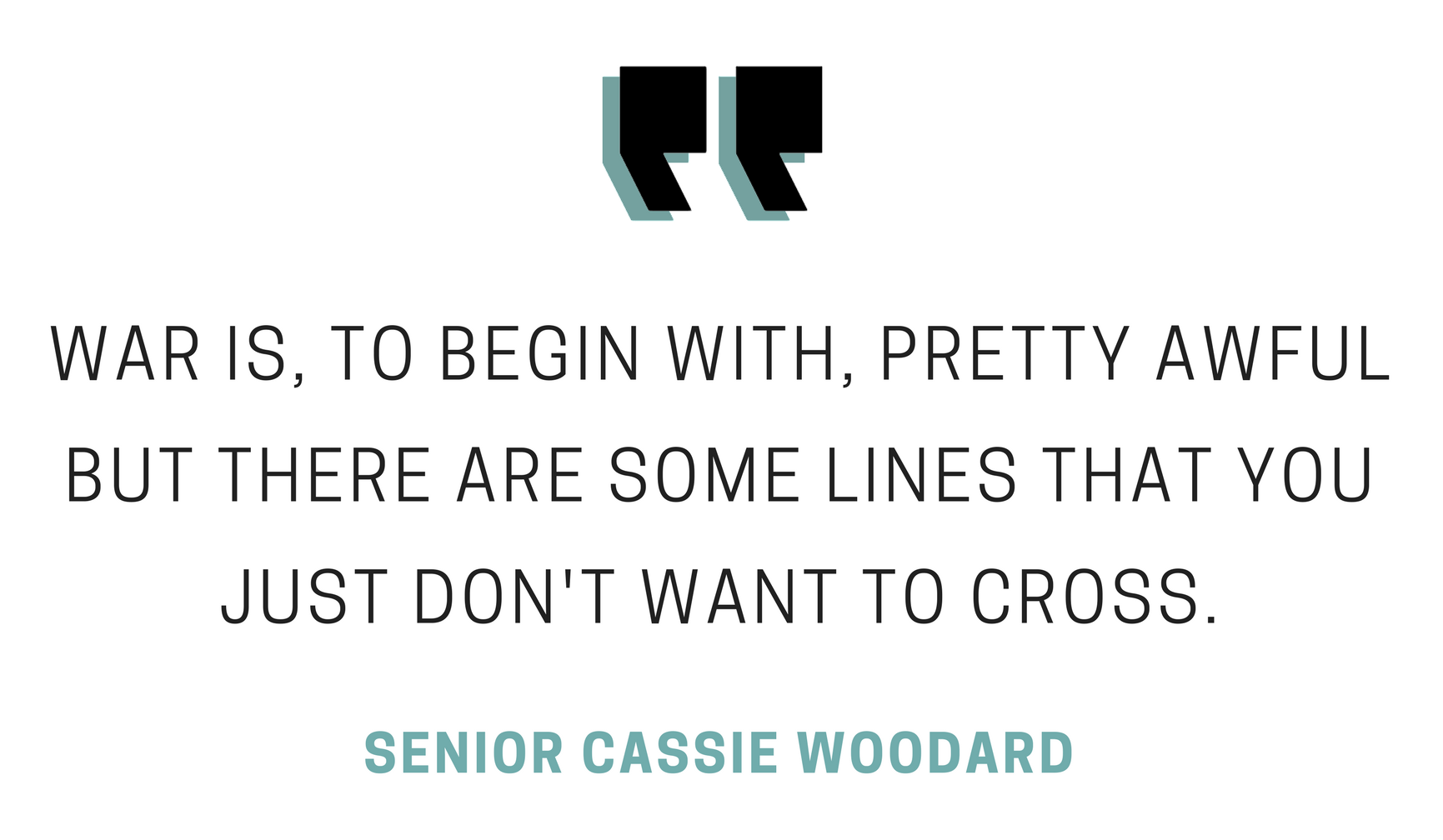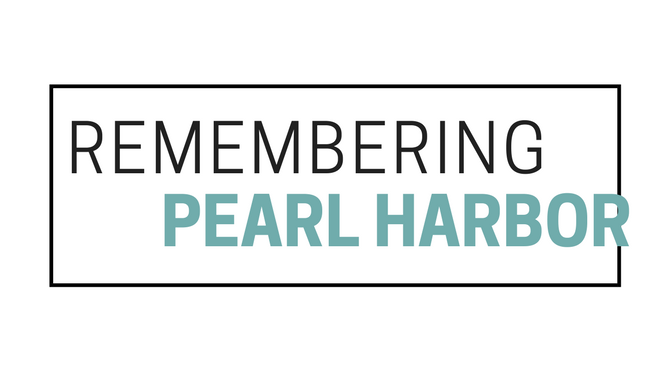The significance of National Pearl Harbor Remembrance Day
December 8, 2017
Additional reporting by Anirudh Chaudhary
he Pearl Harbor bombings occurred on Dec. 7, 1941 — 76 years ago. Yet according to history teacher Eric Otto, who has been to the USS Arizona Memorial multiple times, the physical remnants of that day are still visible.
“A lot of it is still a living museum,” Otto said. “The shipyard still works and the naval vessels are still docked there and naval personnel are still stationed there. You can still see the craters from the bullet holes on the air strip in the center of the air field. And if you go in the hangers, which are still the same World War II era hangers that are still there, you can see bullet holes in the glass.”
Two months later, the signing of Executive Order 9066 resulted in the relocation of about 120,000 Japanese-Americans. Over 18,000 of them were held in the Tule Lake War Relocation Center in California when it was at its peak population—it was the largest internment camp during WWII. It’s also Cupertino resident Reiko Tsuchida’s birthplace. She was born there in 1944, and then moved to Redwood City before moving here to Cupertino.
Tsuchida doesn’t remember how she found out about the internment camps, but she remembers that she read a lot of books about them. Tsuchida thinks that educating others about the bombings is why people find National Pearl Harbor Remembrance Day important.
 Her parents were taken to Tule Lake in 1942, two years before Tsuchida’s birth, and left Tule Lake in 1945, one year before the relocation center closed. After arriving at Tule Lake, her father was sent to Bismarck, North Dakota, for refusing to joining the army, and the family later reunited in Redwood City.
Her parents were taken to Tule Lake in 1942, two years before Tsuchida’s birth, and left Tule Lake in 1945, one year before the relocation center closed. After arriving at Tule Lake, her father was sent to Bismarck, North Dakota, for refusing to joining the army, and the family later reunited in Redwood City.
“[My parents] were so not into [the internment camps] that they were planning on going back to Japan and they renounced their U.S. citizenship,” Tsuchida said. “And they didn’t get it back until my dad died in 1957, so they didn’t get it back for 12 years.”
Many of those who weren’t willing to serve were sent to Bismarck, but Tsuchida doesn’t know much about it. Her father had died when she was 12 years old, and they never spoke much on the topic. Growing up, Tsuchida said her parents were quiet about their experiences, although she said that it did have an undeniable impact on their lives. It wasn’t until six years after her father’s death, when she visited Japan, that she learned more about WWII and the atomic bombs.
Senior Cassie Woodard’s family also stayed quiet about the events of WWII, but her grandfather, who had been living in Hawaii at the time of the Pearl Harbor bombings, talked to her about it when she was around 7 years old. Even though it may have been a military base, Woodard couldn’t understand why they would bomb it with the knowledge that there would likely be civilian casualties.
“When you’re little, your idea of war is very simplistic,” Woodard said. “It’s like ‘war, bad’ but like the idea is like well if you’re in war, only the people who signed up for it should be the ones who are dying. But for me, even as a little kid, the idea that just random people could get caught up in the middle was really horrifying.”
When Woodard was ten years old, her mother discussed why they never asked her grandmother about her childhood. Her grandma had been in an internment camp at the age of three, and her great-aunt went to the internment camp at 17 years old. Her mother told her never to ask them about it.
“Humans aren’t meant to be put in enclosed spaces like that, especially when they did nothing wrong,” Woodard said. “To be put into what equates to a jail as an innocent person, like the amount of trauma that they went through is something that we were just told not to talk about and I remember hearing about that as a 10 year old, and just feeling sick, that that was something that we had done in the past as a country.”
 For Woodard, much of the impact that the war had on her family was the silence — their family doesn’t like to talk about it. When her grandmother willingly brought it up last year when Woodard asked her about what had impacted her life the most, she was shocked. She said that the only person in her family who talks about it is her father, who is part-German. His parents had immigrated to the U.S. from Germany shortly before the Pearl Harbor bombings, and were never treated differently because of it.
For Woodard, much of the impact that the war had on her family was the silence — their family doesn’t like to talk about it. When her grandmother willingly brought it up last year when Woodard asked her about what had impacted her life the most, she was shocked. She said that the only person in her family who talks about it is her father, who is part-German. His parents had immigrated to the U.S. from Germany shortly before the Pearl Harbor bombings, and were never treated differently because of it.
“I know there’s a lot of resentment more, that we got treated differently because of that,” Woodard said. “And that they got off free while my grandparents were judged as like three year olds for being Japanese. It’s not really something that we like to talk about as a family.”
It had an impact on Tsuchida’s life as well — she grew up in Redwood City in an area where there was a higher concentration of Japanese residents, and her parents tended to socialize with more Japanese people as well.
“My parents were raised in Japan and came back when they were in high school, so they’re not really fully Americanized, and since they were incarcerated during the war, I think that really changes your whole outlook on life,” Tsuchida said.
Otto continues to teach about the bombings because of the impact it has had on families like Tsuchida’s and Woodard’s. He says that when it comes to National Pearl Harbor Remembrance Day, it’s important to remember the significance of the event itself.
“I think we should remember the fact that we were surprise attacked and then that launched us into the second World War,” Otto said. “When 9/11 happened, people felt very similar feelings that they felt after December 7 happened.”
As for Woodard, she just believes that people should remember that there are some things — like getting civilians involved — that should never happen.
“War is, to begin with, pretty awful but there are some lines that you just don’t want to cross,” Woodard said.

















